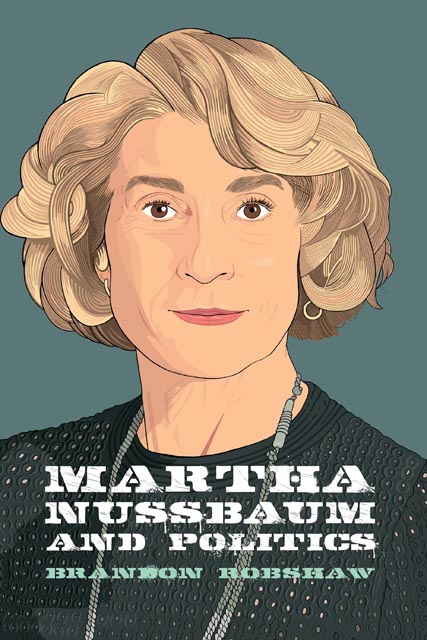Book contents
- Frontmatter
- Contents
- Introduction: A Public Intellectual
- Chapter 1 Nussbaum and the Ancient Greeks: Tragedy, the Luck-Proofing of Life, and Practical Rationality
- Chapter 2 Nussbaum and Education: Socratic Scrutiny, World Citizenship and the Narrative Imagination
- Chapter 3 Nussbaum and Feminism: Liberal Feminism, Adaptive Preferences and FGM
- Chapter 4 Nussbaum and Capabilities: Human Nature, Human Flourishing and the Ten Capabilities
- Chapter 5 Nussbaum and Animal Rights: Capabilities for Animals
- Chapter 6 Nussbaum and Religion: Liberty of Conscience, Accommodation and Burqa Bans
- Chapter 7 Nussbaum and the Emotions: Emotions as Cognitive Judgements – and a Normative Critique of Anger
- Chapter 8 Nussbaum and Global Justice: Cosmopolitanism, Material Aid and Immigration
- Conclusion: An Organic Whole
- Bibliography
- Index
Chapter 7 - Nussbaum and the Emotions: Emotions as Cognitive Judgements – and a Normative Critique of Anger
Published online by Cambridge University Press: 18 October 2023
- Frontmatter
- Contents
- Introduction: A Public Intellectual
- Chapter 1 Nussbaum and the Ancient Greeks: Tragedy, the Luck-Proofing of Life, and Practical Rationality
- Chapter 2 Nussbaum and Education: Socratic Scrutiny, World Citizenship and the Narrative Imagination
- Chapter 3 Nussbaum and Feminism: Liberal Feminism, Adaptive Preferences and FGM
- Chapter 4 Nussbaum and Capabilities: Human Nature, Human Flourishing and the Ten Capabilities
- Chapter 5 Nussbaum and Animal Rights: Capabilities for Animals
- Chapter 6 Nussbaum and Religion: Liberty of Conscience, Accommodation and Burqa Bans
- Chapter 7 Nussbaum and the Emotions: Emotions as Cognitive Judgements – and a Normative Critique of Anger
- Chapter 8 Nussbaum and Global Justice: Cosmopolitanism, Material Aid and Immigration
- Conclusion: An Organic Whole
- Bibliography
- Index
Summary
One of Nussbaum's key achievements has been to bring the study of the emotions to centre stage in moral and political philosophy. For a long time, emotions were neglected by moral philosophers. Writing in 1973, Bernard Williams (who was to become Nussbaum's friend and mentor) noted:
Recent moral philosophy in Britain has not had much to say about the emotions. Its descriptions of the moral agent, its analyses of moral choice and moral judgement, have made free use of such notions as attitude, principle and policy, but have found no essential place for the agent's emotions, except perhaps for recognising them in one of their traditional roles as possible motives for backsliding, and thus potentially destructive of moral rationality and consistency. (Williams 1973: 207)
Williams ascribes this state of affairs partly to the influence of Kant. Kant's theory of morality in The Groundwork of the Metaphysics of Morals (1785) states that it is one's duty to act morally, and one knows what is the moral thing to do by the use of reason. Clearly emotion has no part to play here, either as a motivator (in fact Kant famously argued that it is more morally admirable to act dutifully against one's inclinations than in line with them) or as a means to ascertain what the right thing to do is. Kant's deontological theory , as it is called, has had a profound and lasting influence. Its only serious rival in moral philosophy until quite recently was utilitarianism – but this, with its emphasis on calculating and weighing the consequences of acts with a view to determining which produce the greatest amount of pleasure, welfare or preference-satisfaction, also left little room for the emotions. Towards the end of the twentieth century, the wind changed. Philosophers (such as Williams in the essay quoted above) began to argue for a return of the emotions to moral philosophy; and Nussbaum played a significant role in adding momentum to this change of direction. From her first book, The Fragility of Goodness (1986), Nussbaum has been interested in the role emotion has to play in ethics and politics, and her views have developed throughout her career. She writes about the emotions of fear and disgust in The New Religious Intolerance (2012), as noted in the last chapter
- Type
- Chapter
- Information
- Martha Nussbaum and Politics , pp. 139 - 162Publisher: Edinburgh University PressPrint publication year: 2023



